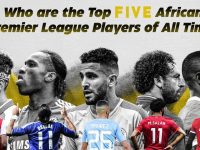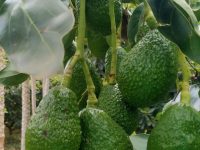Early Life and Family Background
Oburu Odinga was born in the late 1940s in Sakwa, Bondo, Siaya County, into one of Kenya’s most influential political families. He is the eldest son of Jaramogi Oginga Odinga, Kenya’s first Vice President and a central figure in the country’s independence movement. Growing up under the shadow of Jaramogi’s fierce political battles with both President Jomo Kenyatta and later Daniel arap Moi, Oburu’s childhood was shaped by the ideals of justice, equality, and resistance to political repression. The Odinga home was a hub of political discourse, frequented by freedom fighters and reformists. While his brother Raila Odinga would later become a global symbol of Kenyan reform politics, Oburu carved his own identity — one built on intellect, quiet resilience, and economic acumen.
Education and Civil Service Career
Oburu attended Maranda High School, one of the oldest and most prestigious schools in Nyanza. His academic excellence led him to pursue a degree in economics at the University of Nairobi, after which he joined the public service. In the 1960s and 1970s, he served as a Senior Economist in the Ministry of Finance, a position that allowed him to contribute to Kenya’s economic planning during the formative years of independence. His expertise lay in macroeconomic management, fiscal policy, and budget implementation — areas that would shape his later political thinking. Despite his professional success, Oburu’s career in civil service was not immune to politics. The Odinga family’s strained relationship with the ruling elite meant that promotions and assignments often bypassed him. Nonetheless, his quiet dedication to national service earned him respect among colleagues.
1980: Entry into Local Politics
In 1980, Oburu entered elective politics, successfully running for Councillor of the Kisumu Municipal Council. At a time when Kenya was transitioning into a more centralized, one-party system, his election reflected strong local support and public trust. As councillor, he focused on improving sanitation, urban planning, and access to clean water within Kisumu. His managerial background gave him a reputation for administrative efficiency and financial discipline. However, the Odinga name still attracted political suspicion. The Moi regime’s crackdown on dissenting voices forced Oburu to balance between public service and survival in an oppressive political environment.
1983–1988: The Era of Marginalization
The 1983 and 1988 general elections were conducted under the KANU one-party system. Oburu, like many reform-minded leaders, chose not to contest. This period marked one of the most difficult phases for the Odinga family. Following Jaramogi’s fallout with President Moi, the family was effectively sidelined, with many of their associates detained or monitored by state intelligence. Oburu remained in civil service, continuing his work in financial management while quietly supporting pro-reform activities in the background. His low-profile approach preserved his career and allowed him to stay close to community development efforts in Nyanza.
1992: Return of Multiparty Politics
The early 1990s brought a wave of change as pressure from reformists and foreign allies forced Kenya to restore multiparty democracy. Oburu Odinga re-emerged politically in 1992, contesting the Bondo parliamentary seat under Ford-Kenya, a party founded by his father Jaramogi. Though he lost, the campaign was significant — it marked the family’s re-entry into competitive politics after decades of exclusion. The contest revived Ford-Kenya’s grassroots network and set the stage for his later success.
1994: Elected Member of Parliament for Bondo
After Jaramogi’s death in January 1994, a by-election was held in Bondo Constituency. Oburu contested and won, beginning a long career in national politics. His victory was both a tribute to his father’s legacy and an endorsement of his personal credibility. In Parliament, Oburu’s expertise in economics and fiscal planning earned him respect across party lines. He advocated for equitable resource allocation, better education infrastructure, and healthcare access for rural communities. Unlike his brother Raila, who often took a confrontational approach to reform, Oburu operated with quiet diplomacy and consistency.
1997–2007: Parliamentary Longevity and Influence
Oburu was re-elected in 1997, 2002, and 2007, establishing himself as one of the longest-serving MPs in the Nyanza region. During this decade, Kenya underwent a series of political transformations — from the fall of KANU to the rise of the National Rainbow Coalition (NARC) in 2002 and later the creation of the Orange Democratic Movement (ODM). Oburu played an important supporting role in ODM, often serving as a key advisor to his brother Raila during the party’s formative years. His voice carried weight in policy formulation, especially in economic and governance matters. Within Parliament, he served on influential committees such as the Public Accounts Committee (PAC) and Finance, Planning and Trade Committee, where he championed accountability and fiscal discipline. His legislative input was crucial in shaping Kenya’s budgetary process and decentralization framework.
2013: Bid for Siaya Governorship
In 2013, during Kenya’s first elections under the new 2010 Constitution, Oburu sought to become the Governor of Siaya County under the ODM banner. Despite his long experience and strong political lineage, he lost in the party primaries to Cornel Rasanga. The defeat was a moment of introspection, but Oburu accepted it with dignity, showing a rare level of political maturity. Instead of withdrawing from public life, he remained active within ODM, advising younger leaders and continuing to participate in party strategy discussions.
2017: East African Legislative Assembly (EALA)
In 2017, Oburu was elected as a Member of the East African Legislative Assembly (EALA), representing Kenya in the regional parliament based in Arusha, Tanzania. His tenure at EALA showcased his expertise in economic policy and regional diplomacy. He pushed for policies promoting intra-East African trade, infrastructure integration, and youth employment. His time at EALA also reflected his Pan-African roots, continuing his father’s vision of regional unity and economic cooperation. Oburu emerged as one of the few members who combined deep economic knowledge with a firm understanding of legislative governance.
2022: Elected Senator for Siaya County
Oburu’s political resilience was once again proven in the 2022 general election, when he was elected Senator for Siaya County under the Azimio la Umoja coalition, led by Raila Odinga. His victory was symbolic — a recognition of his decades-long dedication to public service. As Senator, Oburu has focused on fiscal oversight, resource allocation, and ensuring transparency in county spending. His voice in the Senate carries the authority of experience, and he continues to mentor a new generation of leaders within the ODM and Azimio movements.
2025: Recognition from the Gen Z Movement
In 2025, Oburu received a surprising endorsement from Kenya’s Gen Z movement, which hailed him as a bridge between the liberation-era leadership and the digital-age generation. Despite his age, he has remained open to engaging youth voices, advocating for entrepreneurship, innovation, and education reforms. The endorsement highlighted his ability to adapt to modern political dynamics while maintaining his principles.
Personality, Family, and Legacy
Beyond his public life, Oburu Odinga is known for his humility, composure, and intellectual rigor. Unlike many politicians of his generation, he has largely avoided scandals, focusing instead on mentorship and governance. A family man and devout Christian, he attributes his moral compass to his upbringing under Jaramogi’s guidance. His leadership style — calm, deliberate, and data-driven — contrasts sharply with the fiery rhetoric that often defines Kenyan politics.
Oburu’s legacy is rooted in his lifelong service to Kenya’s economic and political development. From his early days as an economist in the Ministry of Finance to his later years as senator and regional legislator, his contributions have been steady and impactful. While history will remember Raila Odinga for leading national reform battles, Oburu will be remembered as the stabilizing force — the strategist who grounded the Odinga dynasty in policy and pragmatism.
The Enduring Legacy
Oburu Odinga’s life mirrors Kenya’s political evolution — from independence through one-party rule, the struggle for multiparty democracy, and the rise of devolution. His career, spanning over six decades, embodies the continuity of leadership through turbulent times. To many, he represents the intellectual face of the Odinga legacy: patient, principled, and quietly transformative. Even as he nears the twilight of his public life, Oburu remains a figure of respect and mentorship, bridging generations and reminding Kenyans that true leadership is measured not by noise, but by enduring service.



















